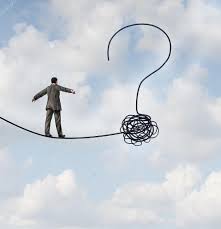I’m on tenterhooks. Pleasure lies only days ahead yet in these uncertain times (Heat. Covid. Politics. Warfare.) I can’t be sure it will be achieved. Such worries spoil my anticipation of pleasure which – when you think about it – is the best part. Few delights live up to their expectation if we are honest.
A rare exception for me – recently mentioned – was San Francisco. I paid a visit - half business, half holiday – in 1970 and it really did live up to its pre-publicity. Manoeuvring a Dodge Charger among the redwoods, free tastings at the wineries, abalone at Fisherman’s Wharf, the exhilaration of crossing the Golden Gate bridge. VR’s flight ticket paid for by my employer. A hotel on El Camino Real. Yeah.
But pause for a moment. Can thinking about the future actually outweigh the nature of the event itself? Can thought be more fun than reality? One thing’s for sure; anticipation often differs widely from what actually ensues. Especially if large sums of money are spent. Our potential for being disappointed is just as great as that for being enchanted. Sometimes we expect or, at least, hope for something that doesn’t exist. A meal that’s true magic. Music that reaches into our soul. A view out of this world - literally.
The first kiss I’d yearned for since short pants communicated only inertia. A best-seller read by millions was badly written. An admired politician bollixed his ultimate promotion.
But suppose joy was unexpected, arriving in a flash. Might there be the faintest tint of regret we were unable to enjoy it in advance? Stretching out the experience, in effect?
What we do know is we often have a talent for perversity. Ingratitude without justification. Selfishness. Greed.
Not you? How about being a poor hand at introspection?


Your penultimate paragraph raised a question I haven't an answer for yet: is ingratitude ever justified?
ReplyDeleteOh...and what is it you are anticipating with such pleasure?
ReplyDeleteCrow: Not all gifts, gestures and tributes, however well-intentioned, are necessarily welcome,
ReplyDeleteWhat pleasure? At the moment I have reasons for being inexplicit. All will be revealed... perhaps.
Anticipatory feelings can be desirable but indulging in them to a degree of excess can result in disappointment. There's much to be said for awaiting the experience to simply enjoy what occurs which may, in fact, deliver even greater pleasure.
ReplyDeleteJoared: There is a case to be made for considering waiting and anticipating as synonymous. Thoughts (about what's to come) pass through our mind as we wait; and anticipation is mostly a mental process whereby we create - and sometimes seem to experience - the future. The commonality is the prospect of time passing. To tell the truth it was unrealistic of me to imagine I could cover all the angles in 300 words which is my wont. Even as I write this somewhat complex response more ideas come crowding in. Over-ambitious would be a kind judgment of this post. My enemies might well prefer to call it pretentious.
DeleteWaiting, or allowing time to pass, for me does not necessarily include thoughts about what's to come whereas anticipating does.
DeleteI've had a couple Catbird sightings lately that were, as always, unexpected. "Thrilled me to the marrow" as Stephen Stills once wrote. I wouldn't trade the surprise for anticipation. Of course there is the grand anticipation of knowing what the orchestra is going to do to you in the next moment. Particularly if you are as undiscerning as me. Nice twist in the final para -
ReplyDeleteMikeM: I sympathise with your preference. Surprise frequently enhances the experience; anticipation is, I suppose, the opposite of surprise since we are more or less incapable of surprising ourselves. The musical experience raises all sorts of problems, certainly when it is classical. My repertoire (as a listener) is more or less complete; new additions are comparatively rare. Theoretically the music itself can never surprise me since I've heard virtually all of it before; only new performances can surprise me. And even then it's a slower process; one finds oneself comparing the new with the old; this takes time and, one suspects, is far from exact. One advantage of classical music is its length. From time to time we come upon passages in familiar pieces which we seem to hear for the first time. But I doubt that such discoveries can be regarded as surprises. More the product of forgetfulness.
DeleteNice post thank you Mike
ReplyDelete